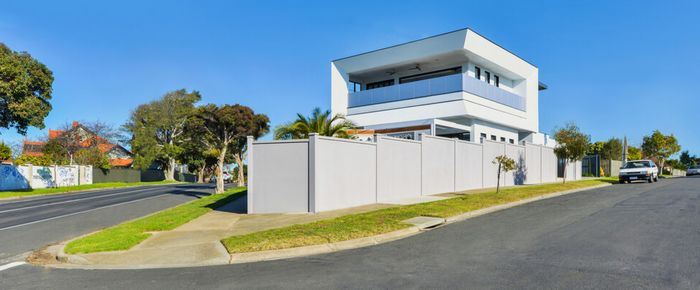
There are several ways to reduce road noise from disturbing you on your property. You can start with the most basic ones like soundproofing, but there are other tricks and tips to putting an end to the noise pollution caused by vehicles on the road near your home.
How to reduce road noise in home
There is no one specific way to cancel noise from your home. However, there are techniques employed in the construction and landscaping industry to reduce indoor noise levels from outside. Here is how to reduce road noise in homes effectively.
Soundproofing
Road noise is a severe problem for people living near roads. If the sirens do not keep you awake, then the high traffic will keep you up. However, you can reduce the noise getting into your home by soundproofing.
How does soundproofing work?
Sound is a form of energy generated when something vibrates. The energy then travels through air, solids, or liquids and causes them to vibrate at the same frequency. That is why you hear traffic noise from the road, even with your door and window closed.
Soundproofing involves the addition of an extra obstacle through which the sound waves will travel. The materials used for soundproofing have air gaps and dampeners which absorb and disperse the noise.
So, when you soundproof your home, you can keep the noise from the road away from your house.
To soundproof your home, here are a few ways to do so:
- Replacing the doors– If you have hollow doors in your house, changing them for solid ones will help soundproof your home. Hollow doors allow more noise to pass, while solid doors absorb the vibrations, thus reducing the noise reaching inside the house.
- Use weatherstripping- When you hear of sealing your doors, the first thought goes to heat loss. However, weather stripping on your doors keeps the heat inside and the noise out.
- Use heavier curtains– It may seem like a no-brainer, but swapping your shears for heavier curtains can help absorb a significant amount of noise from the street. Ensure that the curtains are over the whole window for better results.
- Installing soundproof material– If you cannot put up with the slightest noise from the road, then soundproofing your room is necessary. The process, which would require extensive labor and research, sees that you install soundproof tiles on your walls, plaster them, and clean them. Although it is tedious, you get excellent sound insulation, and your interiors will look fresh and new.
Replace your windows
Street noise is annoying, and having thin or broken windows does not help your case, considering that windows are one of the largest transmission paths for road noises. If the noise is unbearable, you can swap out the plain windows for the double or triple pane windows.
So, how do you find the noise entry points in the windows?
- Examine the windows– WIndows are the biggest culprit in the road noise in the home facade. They could crack or break the wall near the frame. In short, the chances of your window being behind the high noise levels are high. First, inspect the windows for any damages. Is the caulk still intact around the window? Do you notice the glass rattling? If so, make an effort to replace the windows or cracked caulk.
- Inspect the walls-If you have exterior walls with thin stucco; then road noise can penetrate the material. Even a tiny crack on the wall could be why your home is never peaceful near a road. The best way is to find spots where there are cracks and seal them.
Now that you have noticed that there are unacceptable traffic noises in your house, it is time to take action. You can reduce road noise coming into your home through the window by:
- Purchasing double or triple-paned windows with STC (sound transmission class) rating between 26 and 32. The double-paned windows have an airtight sealant and use caulking that prevents airflow into the house, thus preventing road noise pollution.
- Sealing the gaps around the windows and doors is essential in reducing road noise in the house. Cracks provide the path of least resistance for the sound waves. Sealing them off forces the sound to travel through walls and lasses, where they lose energy and become quieter.
Try building a wall
Any barrier between the road and your home will help you fragment the noise. Putting up a wall is one way to o. Alternatively, you can plant tall shrubs to help with the noise: the leafier the plant, and the more the volume, the better the noise deflection.
Although this method is not entirely effective, you can pair it with the techniques mentioned above to prevent noise pollution due to traffic.
Another way you can block the sound waves from reaching your home is by creating a sound barrier. A wall is a perfect sound barrier. A wall deflects the sound waves, causing them to travel over it. The waves then lose their strength, thus becoming quieter.
So, which is the most effective way to reduce road noise in homes?
As previously mentioned, the answer to how to reduce road noise in homes is not specific. In most cases, to achieve the desired noise levels indoors, you may have to employ several methods.
For instance, planting trees and erecting a fence will lower the noise to a certain level, and the triple-paned glass will help alleviate the noise problem by hindering its passage.
Conclusion
It takes time to adapt to the road noise. It could be a few days, weeks, months, or years. However, that should not be the case. If the noise keeps you from sleeping or concentrating, choose a combination of methods to go with and see how much noise pollution is in your house.
